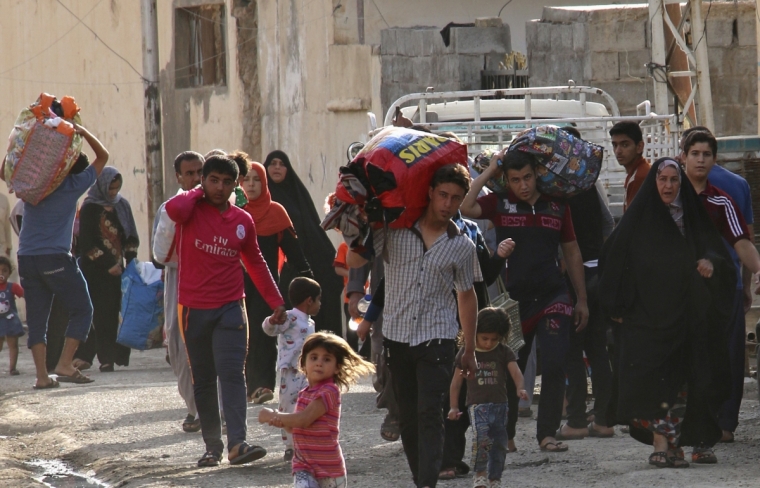ISIS execute 500 after door-to-door 'arrests' in Ramadi

BAGHDAD (Christian Examiner) -- Radio Free Iraq is reporting thousands of Shi'ite militiamen have assembled at an Iraqi army base to prepare for a broad counterattack on the city of Ramadi, which fell to Islamic State forces May 17.
According to the report, Iraqi Prime Minister Haidar al-Abadi was reluctant to deploy the militia to the heavily Sunni area, but the crisis in the capital of Anbar province dictated the decision. The Iraqi News Agency also reported the Anbar provincial council voted on Sunday in an emergency session to allow the Shi'ite al-Hashd al-Sha'bi militia to join the operation.
ISIS militants entered Ramadi Sunday after police and Iraqi military forces abandoned the city. After ISIS forces arrived in the city, they reportedly went door-to-door arresting secularists, policemen, government sympathizers, professionals, and other leaders of the city. The group has reportedly executed at least 500 of their captives and destroyed property belonging to citizens loyal to the fragile government in Baghdad.
At least 25,000 people have fled the city, according to United Nations observers. Most are headed to Baghdad.
An estimated 3,000 Shi'ite militiamen responded to the call for reinforcements in Ramadi. Another 60,000 have pledged to defend Baghdad, according to a report from the Iranian FARS news agency.
Iran is also providing significant military assistance to the predominantly Shi'ite government in Iraq. In March, Kurdish fighters in the north of Iraq complained Iran had sent as many as 30,000 troops to fight the Islamic State on Iraqi soil.
Shakhawan Abdullah, the head of Iraq's parliamentary security and defense committee, claimed in March that Iranian "advisers" and troops were operating under the umbrella of the Popular Mobilization Forces -- the same Shi'ite al-Hashd al-Sha'bi militia aiding now in the counterattack on Ramadi.
There is little doubt Iran is seeking to exert greater influence over Iraq, which it sees as a potential vassal state of a reborn Persian Empire.
In a meeting with Iraqi defense officials in Baghdad yesterday, Iranian Defense Minister Brigadier General Hossein Dehqan said Iranian forces were helping with the "reinvigoration of active resistance" against ISIS.
"The regional conditions, including intensified crises and insecurity at the common security environment of Iran and Iraq, have made close defense cooperation between the two countries inevitable," Dehqan told the FARS news agency, a propaganda outlet of the Iranian government.
Dehqan also said Iran was helping Iraq battle terrorism "without any expectation."
In early April, a Washington Post reporter covering the battle between ISIS and Iraqi forces in Tikrit photographed graffiti touting the defeat of ISIS terrorists.
The graffiti, however, was written in Farsi and claimed ISIS's defeat in Tikrit was at the hands of "Sepah of Khomeini." "Sepah" in Farsi means "corps," a term referring to the Iranian Revolutionary Guard Corps once under the control of Ayatollah Ruhollah Khomeini.
"Daesh" is an acronym for the Islamic State derived from its Arabic name. Arabs who oppose the group prefer to call the terrorists "Daesh" because the name sounds like the Arabic word for a bigot or someone who crushes others underfoot.
RELATED ARTICLE:
After ISIS Executes Hundreds in Ramadi, Shiite Militias, Sunni Tribesmen Join the Battle for Anbar